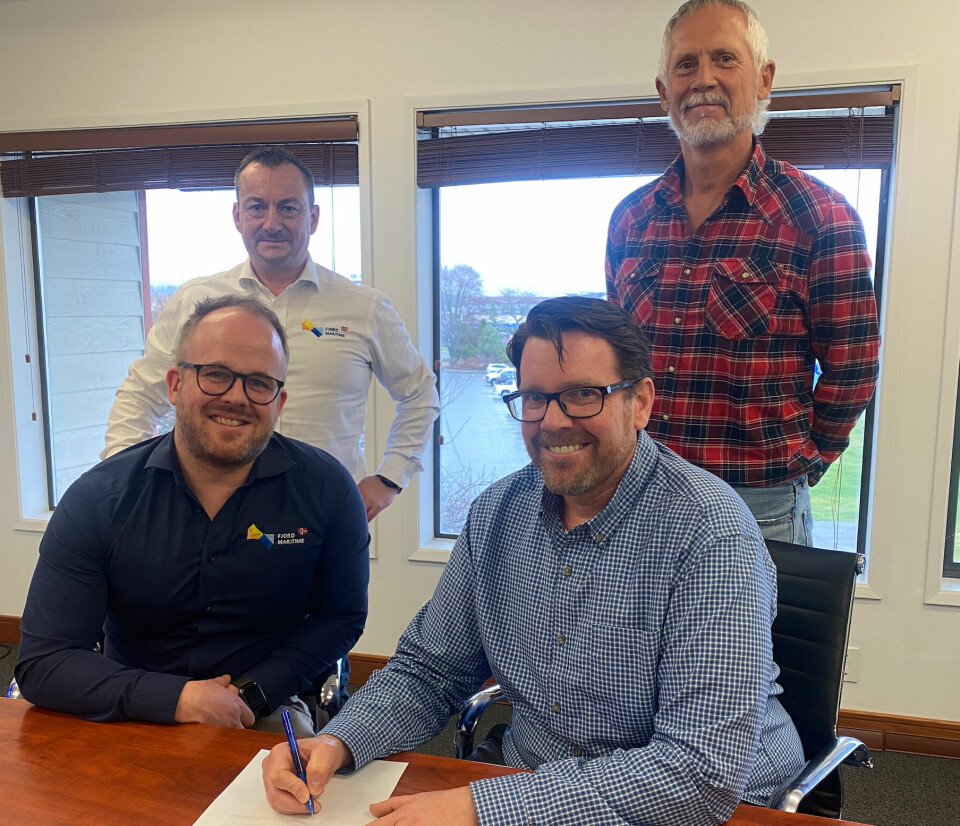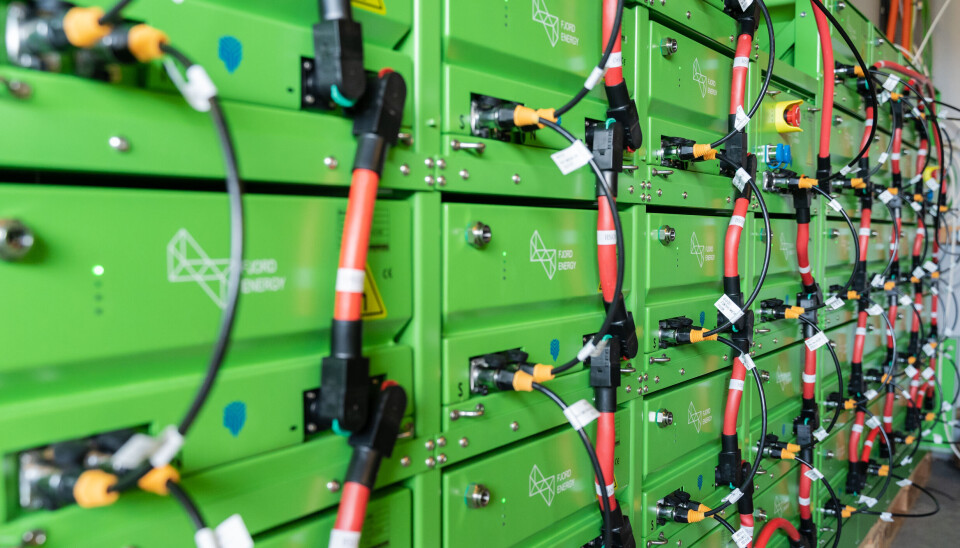
Cermaq signs up for BC’s first hybrid feed barge system
Retrofit battery pack will reduce generator runtime by up to 69% and cut emissions
Cermaq Canada will become the first salmon farmer in British Columbia to operate a hybrid power feed barge after signing an agreement with Norwegian company Fjord Maritime.
The fish farmer has ordered one Fjord Hybrid system that will be fitted to an existing barge, and more may follow.
“To start, we have committed to complete this on one barge in order to evaluate this as an initiative to reduce diesel reliance,” a Cermaq spokesperson told Fish Farming Expert.
“We are also looking at other locations that may benefit from such technology as well as other initiatives like electrifying farm sites.”
152-tonne emissions cut
A hybrid system uses surplus power from a barge’s diesel generator to charge a bank of batteries which can power the barge when the generator is not running. The system also optimises power usage.
Cermaq, owned by Japanese industrial giant Mitsubishi, said Fjord Maritime’s initial analysis was that it could realise up to a 69% reduction in generator runtime for each installation, realising a reduction of 152 tonnes of carbon dioxide equivalent (CO2e) annually per installation.

The hybrid system is expected to be delivered and in operation by late spring or early summer this year and follows extensive research by Cermaq.
Not just adding batteries
“There is a lot to this. It is not just as simple as adding batteries,” said the company’s spokesperson. “The formal movement in this direction is the result of a couple years of work with suppliers, electrical contractors, and internal operational support teams. In order to derive maximum benefit from the technology like Fjord offers, there are a lot of variables to consider.”
Fjord Maritime’s global sales manager, Torstein Nygård, is hoping the company will sell 15 Fjord Hybrid systems to salmon farmers in Canada this year.
“We started focusing on the Canadian aquaculture market before the summer of 2022,” explained Nygård, who has recently returned from a visit to BC.
A long strategy
“We have been monitoring it for a long time and had meetings with fish farmers there as early as in 2019. But our strategy was to establish in Canada in 2022/2023, where we now are setting up our own offices on the west and east coasts.
“We signed our first contract there quite fast and have now had several meetings with the fish farmers. The first Fjord Hybrid will be installed in this quarter on the east coast of Canada.”
Nygård said Fjord Maritime was very impressed with how focused Canadian salmon farmers are to invest in green technology.
“Most barges in Canada are powered by diesel. Based on the calculations we have done and the data we have from over 130 Fjord Hybrid installed (primarily in Norway), the barges in Canada are a perfect fit for Fjord Hybrid.
Remote monitoring
“It’s not only about the reduction in fuel and greenhouse gases. Also, the remote monitoring system Fjord Control gives them a huge benefit since many of the locations are very remote. Our ROC (Remote Operation Centre) department monitors the power supply on the barge 24/7, which gives our customers an opportunity to be proactive and reduce the risk of black outs, blinks or loss of feeding.”
For Cermaq, hybrid power is just one of several ways in which it is aiming to meet a commitment for 35% reduction in emissions by 2030.
Its Canadian farm initiatives include:
- Generator run-time tracking
- Adoption of Poseidon Ocean System’s Flowpressor technology to improve the efficiency of producing compressed air for mitigation of harmful algal blooms
- Installation of micro-hydro systems at a hatchery to supplement power generated by fossil fuels
- Installation of variable frequency drives for efficient operation of electrical motors at grid-connected facilities
- Measuring the feasibility of connecting off-grid facilities to the BC Hydro electrical grid























































